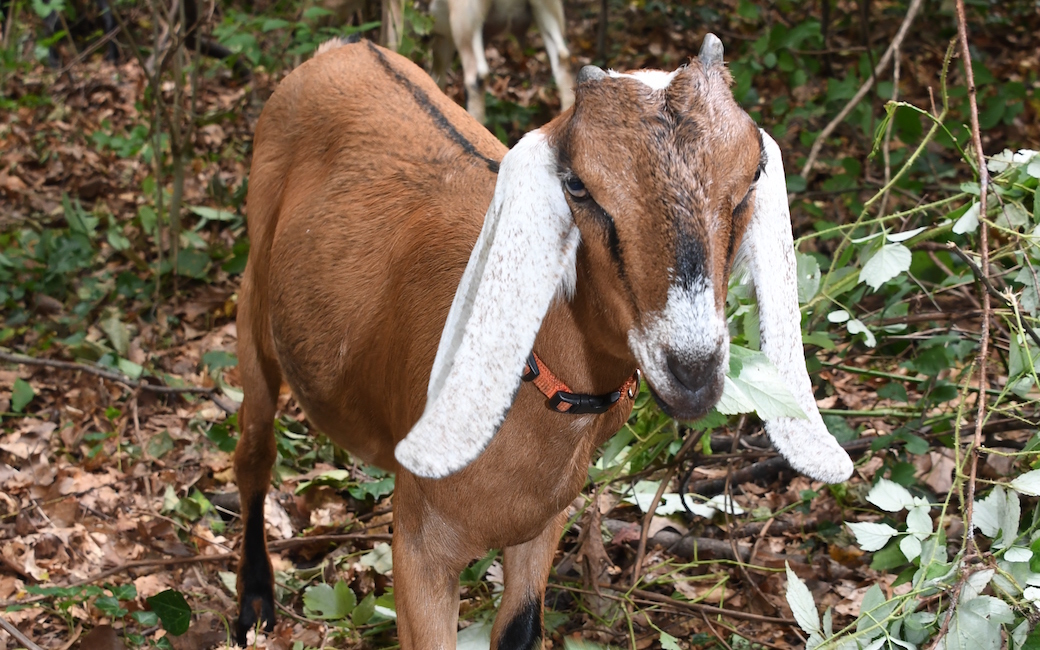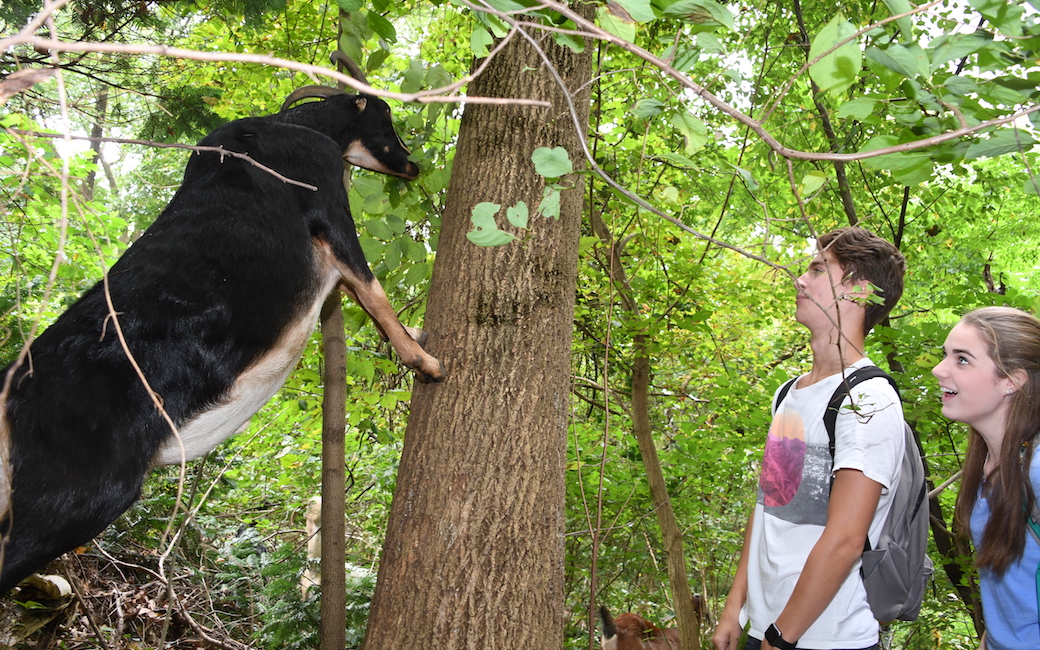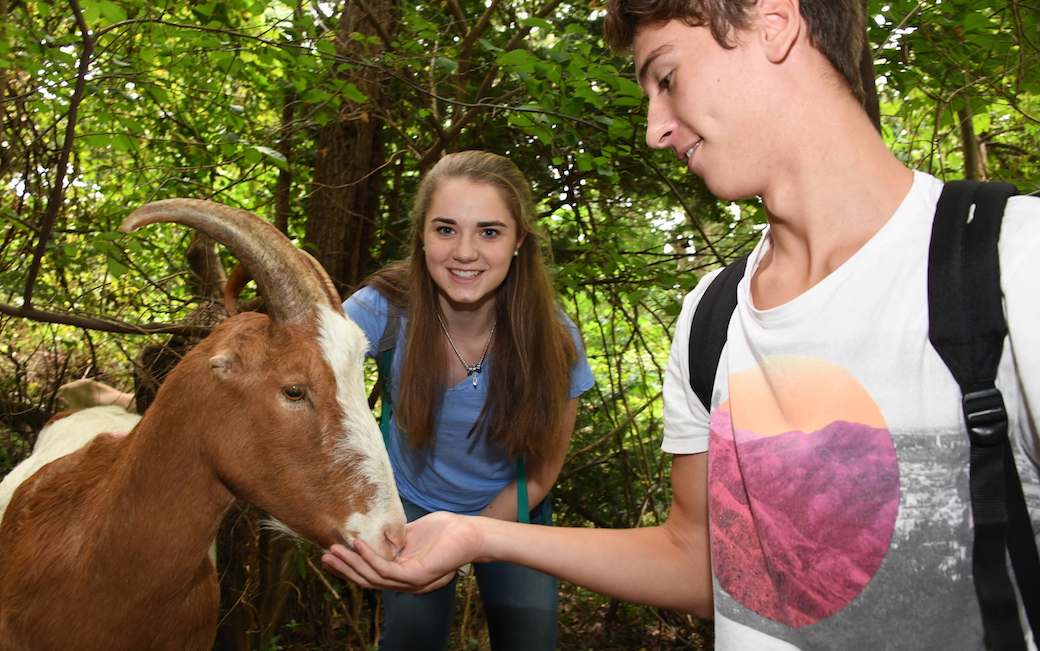
TU invites goats to partner in sustainability efforts
Towson University is hosting the Harmony Church Farm goats for their fourth annual visit the week of September 18.
By Reiko Gallo '18 on September 19, 2017
As a continued effort to promote sustainability, a herd of goats from Harmony Church Farm in Harford County, Maryland, is back at Towson University to help control invasive plants and weeds in an environmentally conscious way.
“The goats have been coming since I was a freshman,” said TU student Sierra Egan, who stopped by The Glen this past Monday to see the goats firsthand. “Every time they show up on campus I get really excited to see them.”
While cute, the goats serve a much larger purpose. James Hull, Ph.D., botanist and professor emeritus in the Fisher College Department of Biological Sciences, has been committed to organizing this event on campus for the past four years.
“The stream that runs through Glen Woods feeds directly to the Inner Harbor,” Hull explained. “Having the goats come in greatly decreases the amount of chemicals and herbicides that contribute to water pollution.”
Funding for the harmony herd comes from multiple outlets. This year, BGE, Towson’s Greek Life Council and the TU Foundation stepped up to provide funds.
Make a donation to help the goats return to campus
Many donors left anonymous notes. According to one TU Foundation donor, “I ‘herd’ about the tradition to bring goats and would love to help in the operations.”
TU has made environmental health and well-being a top priority. The following are some of the many pledges made by the university:
- In 2007 TU committed to Green Building Policy—all new buildings must meet S. Building Council’s LEED Silver Standards.
- In 2014 TU adopted secondary alternative to green building following International Green Construction Code (IgCC) standards.
- TU signed the American College and University President’s Climate Commitment (ACUPCC)
- A pledge to reduce greenhouse gas emissions PFTE by 25 percent (2020), 50 percent (2030), and reach carbon neutrality by 2050.
- RecyCAll—a single-stream recycling program that accepts all recyclables in one container. There are more than 8,000 bins throughout campus.
- Compost—Dining services offers compost collection in almost all dining locations. Recycle bottles, cans, plastic cups, and compost the rest.
- Specialty Recycling—Small personal electronics, batteries, printer cartridges can be recycled in bins throughout campus.
- Food Recovery Network—TU students joined in 2014.
- Solar panels—There are more than 4,000 panels in five campus locations.
- Transportation—There are free bike rentals, access to ZipCars, and on-campus and off-campus shuttles to reduce commutes and carbon footprint. There is also a discount for SmartWay vehicles.
- Student Government Association—The student governing body has a committee and chair position focused solely on civic engagement.
The university has several initiatives planned for later this term:
- The Retreat for Environmental Action—a free talk about ways to make campus more sustainable from Oct. 6–8.
- October is Sustainability Month on campus.
- Student organizations like the Eco-Reps, the Student Environmental Organization, and other host events all year long.
Learn more about sustainability efforts and ways to get involved on campus
This story is one of several related to President Kim Schatzel's priorities for Towson University: Strategic Plan Alignment

